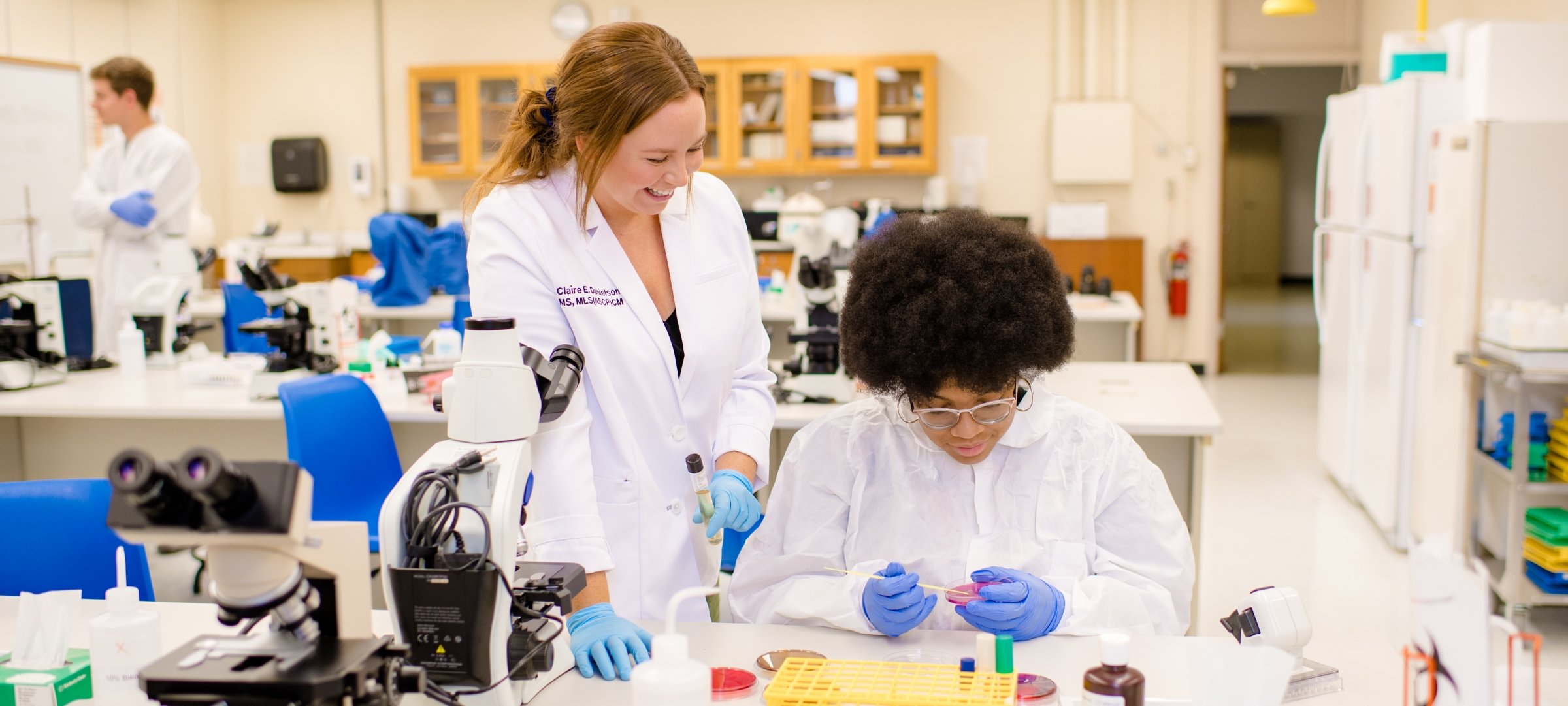Help Diagnose Ailments and Save Lives
Evaluate blood smears to detect disease. Perform crossmatches for safe blood transfusions. Identify bacterial pathogens responsible for infections. As a Medical Laboratory Scientist, you have a direct impact on patient care through the analysis of blood, tissues, and body fluids. You become an essential part of the healthcare team, as nearly 70% of a physician's diagnosis is based on laboratory results.
Graduates receive a pragmatic, qualitative education with a strong understanding of hematology, immunology, molecular biology, clinical chemistry, medical terminology, microbiology, anatomy, and physiology, and more. The fastest route to become a nationally certified Medical Laboratory Scientist is to complete either the 3+1 or 4+1 degree concentration at Michigan Tech, get laboratory experience at one of our affiliated clinical sites, and become eligible to sit for a national certification exam.
Request Information
Demand for Medical Lab Scientists is Soaring
There is a critical shortage of Medical Laboratory Scientists nationwide—approximately 25,000—and with 100% job placement after completing a clinical practicum, Michigan Tech alumni are at the front of the line. That's because here, you learn by doing. At Michigan Tech, you'll work in cutting-edge labs and tackle high-level research projects alongside professors who are among the best in their field. You'll also benefit from small class sizes (average 20 students), personal advising, and one-on-one faculty interaction.
Over 80 Years of Educating Medical Laboratory Scientists
Since 1941, Michigan Tech has been educating top quality medical laboratory scientists. To accommodate our growing program and to help fill the vacancies of medical laboratory positions nationwide, the Medical Laboratory Science program at Michigan Tech became accredited in 2018 through the National Accreditation Agency for Clinical Laboratory Sciences (NAACLS). This accreditation expands the number of available clinical practicum sites available for our students in a variety of new locations throughout the Midwest.
Degree Concentrations
The Medical Laboratory Science program is all about options—and with two degree concentrations, students can choose the route that best suits them. Both concentrations offer a rigorous and engaging curriculum to prepare our students for whatever may follow—a clinical practicum, medical school, a career in industry, and more.
MLS 3+1 Concentration
If you want to take the fastest route to becoming a medical lab scientist, the Medical Laboratory Science 3+1 concentration is for you. You will spend three years on campus learning fundamental information in preparation for a fourth-year clinical practicum.
3+1 students must complete their clinical practicum at a NAACLS-accredited teaching hospital affiliated with Michigan Tech (gold pins) found on the Practicum Map. Please refer to the the 3+1 degree audit for more information.
MLS 4+1 Concentration
The Medical Laboratory Science 4+1 concentration is similar to the Medical Laboratory Science 3+1 option, but with an added year for additional study and specialization. You will spend four years on campus in preparation for an additional semester-long clinical practicum.
4+1 students may complete their clinical practicum at either a NAACLS-accredited teaching hospital (gold pins), or through one of our clinical affiliates (gray pins) found on the Practicum Map. Please refer to the 4+1 degree audit for more information.
-
100%job placement after completing a clinical practicum
-
80+years of medical lab science at Michigan Tech
Tomorrow Needs Talented Medical Laboratory Scientists
The BLS reports 7% growth in demand for medical lab scientists over the next decade. A bachelor of science degree in medical laboratory science prepares you for a successful career—you'll help diagnose patient ailments; improving quality of life and even saving lives.
Career Opportunities for Medical Lab Science Majors
Your future career options are unlimited with a degree in medical lab science. Career opportunities include:
-
Cytotechnologist
-
Histotechnologist
-
Pathologists' Assistant
-
Specialist in Blood Banking
-
Technologist in Blood Banking
-
Technologist in Chemistry
-
Technologist in Cytogenetics
-
Technologist in Hematology
-
Technologist in Microbiology
-
Technologist in Molecular Biology
Michigan Tech Medical Lab Science Majors Have Been Hired By
The growing list of companies that have hired Michigan Tech medical lab science graduates includes:
- Abbott Laboratories
- Abbott Northwestern Hospital
- Aspirus Ironwood
- Aspirus Keweenaw
- Aspirus Wausau
- Corewell Health
- Detroit Medical Center
- Fisher Scientific
- Marshfield Clinics
- Mayo Clinic
- Michigan Medicine
- MyMichigan Health
- Northwestern Memorial Hospital
- UPHS Marquette
- UPHS Portage
- UW Health






